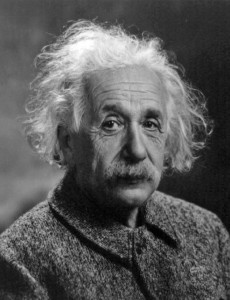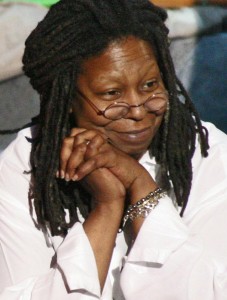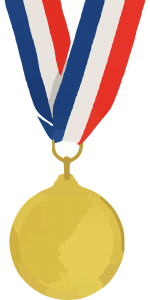Main Body
The Many Faces of Genius
Learning Goals
In this chapter, you will learn to:
- Use pre-reading strategies
- Explain main ideas in your own words to check your understanding while you read
- Build your vocabulary
- Understand the main ideas and details of a text
- Draw conclusions
- Spell words with silent consonants: wr, kn, gh, and mb
- Use colons correctly
- Identify the verb in a simple sentence
- Write an opinion paragraph

Get Ready to Read
Readers think about their own experiences with a topic before they read a text. They ask questions like, “What does this make me think of?” or “What do I already know about this topic?” Think about the questions below or discuss them with a partner.
- Who or what does the word “genius” make you think of?
- Who is the smartest person you know? What makes her or him smart?
- Agree or disagree with this statement: Being smart means being good at reading, writing, and math.
- Look quickly at the the reader for The Many Faces of Genius. What do you think the topic of this text will be?
Reading Strategy
Readers check their understanding of a text while they read. One strategy is to stop after each paragraph and try to retell the main idea in your own words.
Try this strategy as you read The Many Faces of Genius.
Vocabulary
Find these words in the text. Use the context to choose the best meaning.
| measure | genius | Nobel Prize | adapt |
| visualize | compose | show business | cope |
1. The __________________________ is a prize awarded to people who do important work in literature, medicine, and science, or for world peace.
2. A __________________________ is a very smart person.
3. The business that makes movies, TV shows, and plays is called __________________________.
4. __________________________ means to change your behaviour so it is easier to live in a particular situation.
5. __________________________ means to create a piece of music or writing.
6. __________________________ means to deal with problems and try to come up with solutions.
7. To __________________________ is to find the size, amount, or value of something.
8. __________________________ means to form a mental picture of something.
Check Your Understanding
The text has four paragraphs. Find the paragraphs that match each of the main ideas below.
1. It is difficult to define intelligence.
2. There are different ways to be smart.
3. Intelligent people don’t always do well in school. There are many examples of geniuses who struggled in school.
4. You can find out about your strengths by taking a quiz on the Internet.
Are these details true or false?
5. People who are logic smart are good at reading maps.
6. People who are people smart are good at understanding how others are feeling.
7. People who are word smart are good at explaining things.
8. People who are body smart know their strengths and weaknesses.
9. People who are self smart tend to make good personal decisions.
Answer these questions using a complete sentence. The answers are not in the text. You must draw conclusions based on what you have read.
10. What kind of intelligence do you think Albert Einstein was strongest in?
11. What kind of intelligence do you think Winston Churchill was strongest in?
12. What kind of intelligence do you think Whoopi Goldberg is strongest in?
13. What kind of intelligence do you think you are strongest in?

Spelling
A consonant is any letter that is not a vowel. Some words have silent consonants. This means that you do not pronounce them. Common silent consonant patterns include wr, gh, kn, and mb. Arrange a date to be tested on your ability to spell these words.
|
wrist wrong writer ghost know |
knife knee thumb bomb plumber |
One way to learn to spell a new word is to look for the tricky parts. Silent consonants can be tricky. Cross out the silent consonants in these words.
1. bomb
2. wrist
3. ghost
4. plumber
5. know
6. wrong
7. knee
8. writer
9. thumb
10. knife
Colons
Grammar Rule
- Colons can be used before a list. For example,
Whoopi Goldberg has won every major award in show business: the Oscar, Emmy, Tony, and Grammy.
The colon in this sentence shows that “Oscar, Emmy, Tony, and Grammy” is the list of major awards in show business that Whoopi Goldberg has won.
- Colons can be used before a definition. For example,
Picture smart: able to visualize, read maps, and draw
The colon in this example shows that the phrase “Picture smart” is defined as “able to visualize, read maps, and draw.”
Insert colons in these sentences.
1. People have five senses vision, hearing, smell, taste, and touch.
2. The tongue can only taste five things sweet, sour, salty, bitter, and savoury.
3. I.Q. tests measure many things general knowledge, math, reasoning, memory, puzzle-solving, reading, and analyzing shapes.
4. I.Q. tests have many problems they are unfair to people from different cultural backgrounds, they don’t measure all the ways a person can be smart, and some people don’t do well on tests because they get nervous.
5. Leonardo da Vinci came up with many ideas for inventions a parachute, a glider, a bicycle, a life jacket, and many kinds of weapons.
6. The smartest animals tend to be the ones with a backbone apes, dolphins, dogs, and crows.
7. Neuroscientist a person who studies how the brain is structured and how it works.
8. Psychologist a person who studies human behaviour and the mind.
Simple Sentences: Identifying the Verb
In the last chapter, you learned that a complete simple sentence needs a subject, a verb, and a complete thought. You studied the different kinds of subjects: people, places, and things. In this chapter, you will study verbs.
Grammar Rule
- A verb is often an action word. The action verbs in the sentences below are underlined.
Tom Longboat ran faster than anyone.
Albert Einstein wrote an exam.
- Some verbs can be tricky to identify because they don’t seem like actions. For example, be and have are verbs. These verbs have many different forms. Forms of be include is, are, was, were, and will be. Forms of have include has, had, and will have.
Who has my Tanya Tagaq CD?
Is this your card?
- Some verbs are two, three, or four words long. These verbs have a main verb and some helping verbs. Words like can, could, should, may, might, will, would, and must are helping verbs.
A CEO in Seattle has lowered his own salary.
This way, he can pay all the workers in his company a minimum of $70,000.
The workers at his company had been making $48,000 per year.
The CEO had been making $1,000,000 per year.
Now he will make $70,000 per year, too.
Underline the verbs in these sentences.
1. Butterflies fly over 4,000 kilometres from Canada to Mexico every fall.
2. I ate six hot dogs in two minutes.
3. Marilyn Bell swam across Lake Ontario.
4. The sun will burn out in about 5 billion years.
5. People will live on Mars one day.
6. It will rain tomorrow.
7. My grandma has 23 grandchildren.
8. Where are my pants?
9. The longest town name in the world is Llanfairpwllgwyngyllgogerychwyrndrobwllllantysiliogogogoch.
10. You should drive a riding lawnmower up and down on a hill, not sideways.
11. Tourists can stay in an ice hotel near Quebec City.
12. A big earthquake may hit British Columbia sometime soon.
Writing
An opinion paragraph shares what you think or feel about something. It should:
- Start with a topic sentence that says your opinion
- Include details, such as facts and examples, that prove your opinion
- End with a concluding sentence that reminds the reader of your opinion
- Use linking words like: first, second, third, for example, in addition, also, as a result, for this reason
Below is an example of an opinion paragraph. Organize the information from this paragraph on the Back Up Your Opinion worksheet. Remember that an opinion statement often contains the word “should” or “must.” An opinion can be backed up with facts and examples to convince others to agree.
Adult basic education should be free for all students. First, people who access adult basic education tend to have a low income. If adult basic education costs money, the people who need it most will not be able to afford it. Second, it is cheaper to provide free education than it is to deal with the results of lower literacy rates. Lower literacy leads to more health problems, more crime, and more families in need of welfare. Third, high school graduation rates are low among Aboriginal people. This is the result of hundreds of years of government policies that have tried to destroy Aboriginal communities. Adult basic education programs give people a second chance to finish their high school diploma. The government owes Aboriginal people this second chance. For these reasons, British Columbia should invest in free adult basic education.

Writing Task
Imagine that the government of British Columbia has announced a new award: The Smartest Person in the Province Award. You have decided to write a paragraph to suggest the government give the award to the smartest person you know. Remember that there are many ways of being smart! Follow the TOWER method to write your paragraph.
- Think of the names of some people you know who might deserve the award. Choose one person. Brainstorm all the reasons you think they deserve to win.
- Organize your best ideas on a Back Up Your Opinion worksheet.
- Write a first draft of your opinion paragraph.
- Edit your paragraph, with the help of your instructor and The Many Faces of Genius opinion checklist.
- Rewrite your paragraph. You may wish to type it on a computer. Finally, hand it in to your instructor.
Ask your instructor for a copy of the worksheet and checklist, or print copies from the links above. For printable versions, see Appendix 1 and Appendix 2.

Answer Key
| Vocabulary | |
| QUESTION | ANSWER |
| 1 | Nobel Prize |
| 2 | genius |
| 3 | show business |
| 4 | adapt |
| 5 | compose |
| 6 | cope |
| 7 | measure |
| 8 | visualize |
| Check Your Understanding | |
| QUESTION | ANSWER |
| 1 | paragraph 2 |
| 2 | paragraph 3 |
| 3 | paragraph 1 |
| 4 | paragraph 4 |
| 5 | false |
| 6 | true |
| 7 | true |
| 8 | false |
| 9 | true |
| 10 | Albert Einstein was logic smart. |
| 11 | Winston Churchill was people smart. |
| 12 | Whoopi Goldberg is body smart. (If you said she is music smart, that is also correct.) |
| 13 | Answers will vary, as this is a personal question. |
| Spelling | |
| QUESTION | ANSWER |
| 1 | bom |
| 2 | |
| 3 | g |
| 4 | plum |
| 5 | |
| 6 | |
| 7 | |
| 8 | |
| 9 | thum |
| 10 | |
| Colons | |
| QUESTION | ANSWER |
| 1 | People have five senses: vision, hearing, smell, taste, and touch. |
| 2 | The tongue can only taste five things: sweet, sour, salty, bitter, and savoury. |
| 3 | I.Q. tests measure many things: general knowledge, math, reasoning, memory, puzzle-solving, reading, and analyzing shapes. |
| 4 | I.Q. tests have many problems: they are unfair to people from different cultural backgrounds, they don’t measure all the ways a person can be smart, and some people don’t do well on tests because they get nervous. |
| 5 | Leonardo da Vinci came up with many ideas for inventions: a parachute, a glider, a bicycle, a lifejacket, and many kinds of weapons. |
| 6 | The smartest animals tend to be the ones with a backbone: apes, dolphins, dogs, and crows. |
| 7 | Neuroscientist: a person who studies how the brain is structured and how it works. |
| 8 | Psychologist: a person who studies human behaviour and the mind. |
| Simple Sentences: Identifying the Verb | |
| QUESTION | ANSWER |
| 1 | Butterflies fly over 4,000 kilometres from Canada to Mexico every fall. |
| 2 | I ate six hot dogs in two minutes. |
| 3 | Marilyn Bell swam across Lake Ontario. |
| 4 | The sun will burn out in about 5 billion years. or The sun will burn out in about 5 billion years. |
| 5 | People will live on Mars one day. |
| 6 | It will rain tomorrow. |
| 7 | My grandma has 23 grandchildren. |
| 8 | Where are my pants? |
| 9 | The longest town name in the world is Llanfairpwllgwyngyllgogerychwyrndrobwllllantysiliogogogoch. |
| 10 | You should drive a riding lawnmower up and down on a hill, not sideways. |
| 11 | Tourists can stay in an ice hotel near Quebec City. |
| 12 | A big earthquake may hit British Columbia sometime soon. |
| Writing | |
| Opinion | Adult basic education should be free for all students. |
| Proof #1: | First, people who access adult basic education tend to have a low income. If adult basic education costs money, the people who need it most will not be able to afford it. |
| Proof #2: | Second, it is cheaper to provide free education than it is to deal with the results of lower literacy rates. Lower literacy leads to more health problems, more crime, and more families in need of welfare. |
| Proof #3: | Third, high school graduation rates are low among Aboriginal people. This is the result of hundreds of years of government policies that have tried to destroy Aboriginal communities. Adult basic education programs give people a second chance to finish their high school diploma. The government owes Aboriginal people this second chance. |
Attributions
Albert Einstein
Image by skeeze is in the public domain.
Whoopi Goldberg
Whoopi Golberg by Daniel Langer is used under a CC BY SA 2.0 license.
Adult education
Image by ClkerFreeVectorImages is in the public domain.
Gold medal award
Image by ClkerFreeVectorImages is in the public domain.

